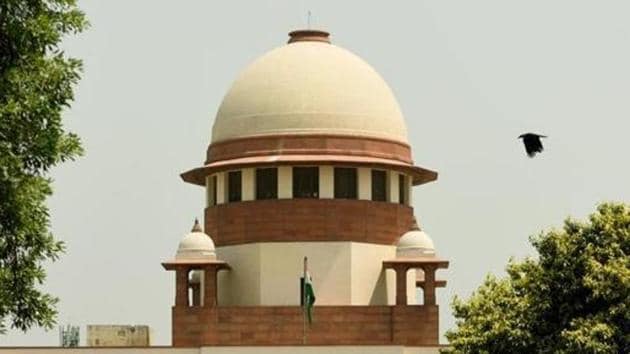Ayodhya mediation fails, SC to hear case on day-to-day basis from Aug 6
A five-judge constitution bench, comprising Chief Justice of India Ranjan Gogoi, and justices SA Bobde, DY Chandrachud, Ashok Bhushan and S Abdul Nazeer, arrived at this decision after going through the panel’s report submitted on Thursday.
The Supreme Court on Friday decided to hear the Ram Janmabhoomi-Babri Masjid dispute on day-to-day basis from August 6 as three-member mediation panel has been unable to get the various parties involved in it to come to an agreement.

A five-judge constitution bench, comprising Chief Justice of India Ranjan Gogoi, and justices SA Bobde, DY Chandrachud, Ashok Bhushan and S Abdul Nazeer, arrived at this decision after going through the panel’s report submitted on Thursday.
The report by the mediation panel, comprising former Supreme Court judge FMI Kalifulla, spiritual guru and founder of Art of Living founder Sri Sri Ravishankar and senior advocate Sriram Panchu, a renowned mediator, came after almost four-and-a-half month-long negotiations between Hindu and Muslim litigants to explore the possibility of an out-of-court settlement to the decades-long Ayodhya land dispute.
Explained | Ayodhya dispute: Significance of SC-mandated mediation; what next
While most Muslim parties to the case welcomed the mediation effort, the Uttar Pradesh government and Hindu parties opposed the initiative.
The Supreme Court had earlier, in response to a plea from one of the original petitioners in the case that the mediation wasn’t going anywhere, ordered the panel to “inform the Court the outcome of the mediation proceedings .”
Read: Ayodhya case back in Supreme Court as mediation fails. Here’s a timeline
It had requested Justice Kalifulla to apprise it by July 18 about the progress of mediation till date and its present stage. The court had made it clear that if the mediation failed, a day-to-day hearing would begin.
In 13 photos, the Ram Janmabhoomi - Babri Masjid title dispute so far
The panel was initially given eight weeks to explore the possibility of a settlement, but on May 10, after the panel submitted an interim report to the court, the SC granted it an extension of three months, till August 15.
Fourteen appeals have been filed in the apex court against the 2010 Allahabad High Court judgment, delivered in four civil suits, that the 2.77-acre land in Ayodhya be partitioned equally among the three parties -- the Sunni Waqf Board, the Nirmohi Akhara and Ram Lalla.
.
.






